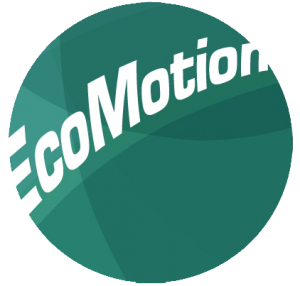#120 – EXECUTIVE SUMMARY
GeoLease Program
Southwestern Electric Cooperative (SWEC or the Co-op) is a small distribution company located in Illinois that like many other cooperatives has been losing market share for residential space heating to natural gas, a situation that has resulted in revenue loss for the Co-op. While gas is thermodynamically more efficient than resistance electric heating, SWEC devised a clever means of providing its members with a win-win solution by promoting ground source heat pumps, an even more efficient technology than gas from a source-BTU standpoint. By doing so, SWEC has been able to save its members money while maintaining its market share and thus revenue stream to keep its rates low and level of service high.
Ground source heat pumps tap a renewable energy form, the heat available in the earth. By compressing this previously unusable heat, heat pumps can provide low-cost heating without expending depletable energy forms like gas and oil. While heat pumps cost less to operate than systems that combust non-renewable resources, they do face a fundamental drawback today: high first cost. Despite their attractive lifecycle economics they have been underutilized because they typically cost $2,000-5,000 more than a comparable conventional heating system. SWEC’s GeoLease program addresses this head on, providing below-market loans for the heat exchange loops that are buried in the ground and leases for the "balance of plant."
GeoLease also has another strategic program design feature: In order for homes to qualify for the program’s special electricity rates they must meet specific efficiency criteria. For instance, homes must have a minimum of R-38 insulation in ceilings. Qualifying customers’ hot water heaters must also be part of the Co-op’s radio-controlled load management program. By qualifying, the program assures homeowners that despite paying a higher electricity rate (which covers the cost of the lease) that they can have a positive cash flow compared to what they would have spent on an alternative system.
While SWEC has been promoting heat pumps since 1985, relatively few systems were installed between 1985 and 1993. In late 1993 the program design was fundamentally changed such that rather than providing $1,000-2,000 rebates -- reducing but not eliminating the first-cost barrier -- SWEC refashioned its program so that participants no longer have to put any money down. This has created a dramatic surge in participation and a doubling of the program’s effect. Now a 120-home subdivision within SWEC’s service territory is being considered for the nation’s first completely geothermally heated subdivision. By trenching and installing loops at the time of other excavation, the costs of the systems can be lowered further, making their application that much more attractive.
Print Executive Summary
Download Entire 19 Page Profile
The Results Center Profiles: The results center

In the early and mid 1990s The Results Center produced 126 case studies of the most successful energy efficiency and renewable energy programs in the United States and around the world. With the support of the John D. and Catherine T. MacArthur Foundation, Ted Flanigan directed a research team at Colorado-based IRT Environment to produce and distribute these exceptional examples. Thanks to strong demand for case studies, The Results Center was supported by dozens of major utilities and energy associations worldwide. The Results Center is again producing the case studies it has been known for, still under the direction of Ted Flanigan, but now at EcoMotion Incorporated, a firm focused on strategic consulting, information dissemination, program design, outreach services, and aggressive implementation. To nominate highly successful programs, contact: The Results Center, c/o EcoMotion, 15375 Barranca Parkway, F-104, Irvine, CA 92618, (949) 450-7155, or TFlanigan@ecomotion.us
